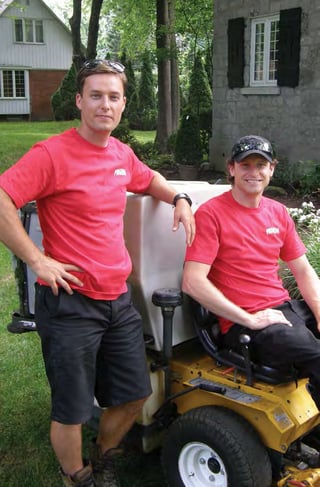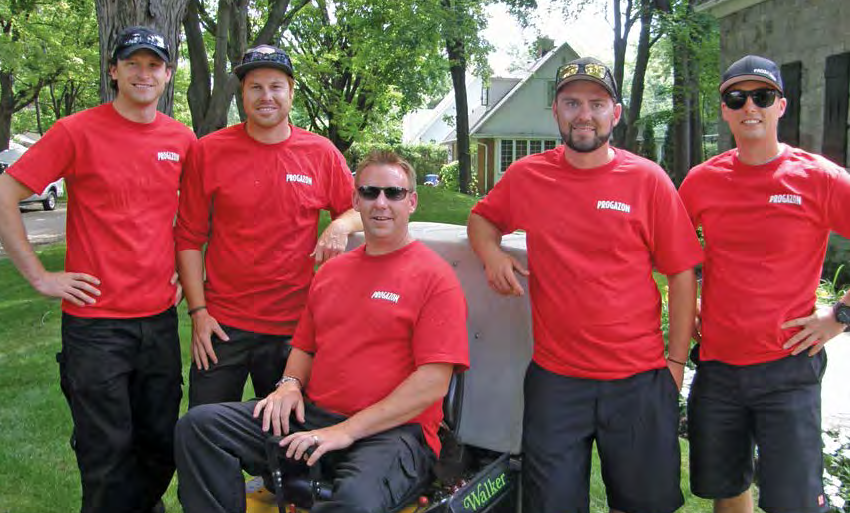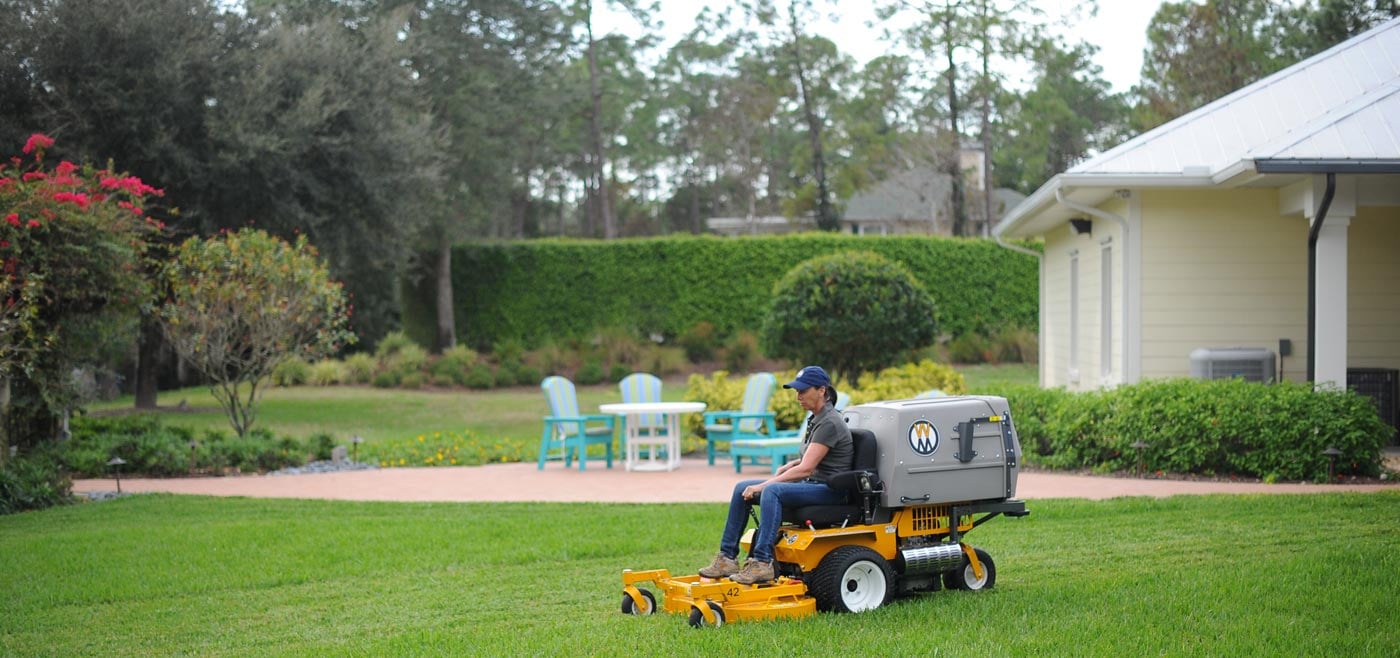How do you transport your mower when you’re too young to have a driver’s license? Most kids rely on their parents or older siblings to get them to the job sites. This didn’t work for Philippe Provost, president of Progazon in St. Lambert, Quebec, Canada. He had a better idea: roller blades.
 With work shoes secured to his mower, Provost would glide from customer to customer. Little did he dream that one day his summer job would blossom into a $4.5 million operation, and that one set of roller blades would transform into a fleet of 38 trucks.
With work shoes secured to his mower, Provost would glide from customer to customer. Little did he dream that one day his summer job would blossom into a $4.5 million operation, and that one set of roller blades would transform into a fleet of 38 trucks.
He didn’t do it alone, however. Most of his nine company branches or franchises, all located within a short drive of Montreal, are operated by friends. They worked for him early on, after the roller blades became dated, and later joined with him after he purchased Progazon in 2006.
“I started this business with friends and it was built on what we are as owners,” says Provost. “From the beginning our philosophy was do it right and we will have fun growing the company. There’s no question our success is attributed to our employees, most of whom I’ve known for 15 to 20 years. We work together and many of us vacation together. It’s a true family-like environment.”
Strength in Numbers
That first year in business, Progazon generated $500,000 in sales, primarily mowing residential accounts with 21-inch walk-behind mowers. They provided other services, too, including snow removal, renovating and installing landscapes, and doing just about anything else a customer wanted done. The latter hasn’t changed, notes the director of Progazon’s St. Lambert’s maintenance franchise
“If it’s something that involves the outside of a property, we will find a way to get it done,” relates JeanSébastien Masterson, another lifelong Provost friend. “We never say ‘no’. If we cannot do it, we have relationships with contractors who can.
“Sixty percent of our accounts are residences, but we also work with city governments, train stations and retail outlets. Part of the reason we’re successful is that the directors all have different strengths that complement one another. For example, Philippe is great with numbers and I’m more into sales. Then, we have directors who are great at production and so forth.”
“We have to work with our profit margins,” Provost admits. “This is a tough business. The Walker Mowers have helped, though. We purchased our first one in 2006 and found that the mower could replace a crew member. Now we have seven of them, five with GHS decks, and one Super B and Model B each with mulching decks. We also have a 74-inch side-discharge deck.”
Progazon still has its initial Walker Mower, now with more than 3,000 hours on it. The company also operates with Toro 30-inch mowers for tight spaces and two John Deere ZTraks for mowing parks. Its trucks are all Ford.
Masterson adds, “As you can see, we are very loyal to our suppliers. If the product is good and we get good service, we’re not going to shop around for a better deal. That’s something we expect from our customers, too. Every so often, we lose an account to a competitor, but almost always the customer comes back. Most understand that providing good service and delivering a quality product comes at a cost.”

Building a Business
Just as trucks replaced roller blades for Provost, email has replaced door hangers as the preferred way to market his company’s services, and the list is long. Progazon has standard pricing for property clean-ups, mowing, aeration and removing snow. Providing horticulture services, trimming bushes and hedges and maintaining flower beds is priced out on an hourly basis. Restrictions on weed control products means that customers have to learn to live with weeds.
“Mowing alone accounts for approximately 25 percent of our annual sales,” Provost explains. “Maintenance, including mowing and snow removal, represents 60 percent of our sales volume. Landscape installation makes up the remainder.” Provost notes that long Montreal winters help to keep associates employed all year, which is good for the company and the employees.
For marketing, the company relies on word-of-mouth and email. “Collecting emails is important,” Provost emphasizes. “We probably have 4,000 email addresses for snow customers and another 2,000 to 3,000 for mowing and maintenance customers. We send a complete list of our services to everyone, many of whom may want a service they didn’t know we offered.”
Customers sign up for yearly contracts and are offered a discount for paying up front for the season, which is important for generating revenue during spring startup. Currently, the company has 100 employees.
How big is big enough for Provost and his friends? He shrugs his shoulders. “We don’t know, but our business model dictates that each branch or franchise can handle approximately $1 million in annual sales.” They haven’t reached that level yet. When they do, maybe they can entertain the thought of adding more franchises and Walker Mowers.




 Site Search
Site Search



